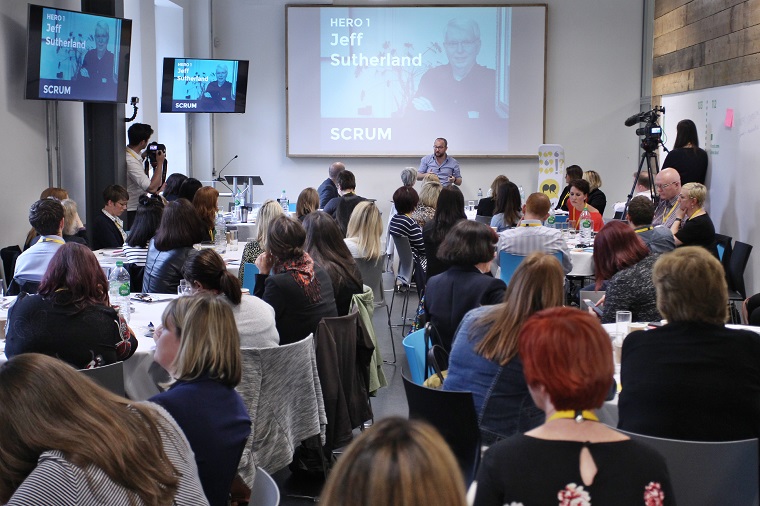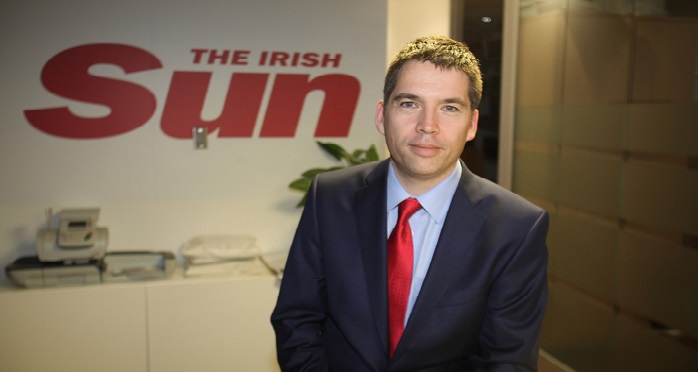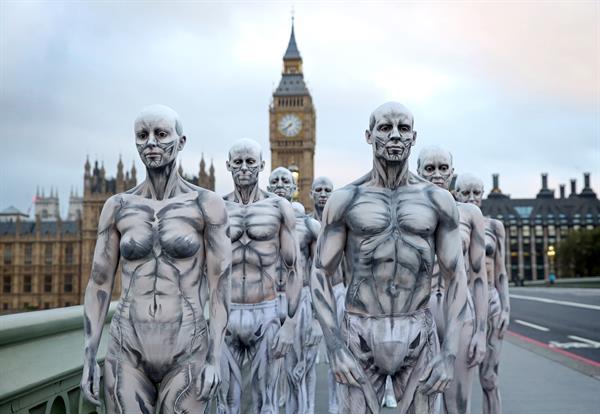This past year we have spoken to many high profile PR and comms practitioners, who have shared their thoughts and insights about the industry. In this article, we have compiled the best predictions given to us by our interviewees that will give you a headstart when it comes to getting ahead of the trends in 2017. Ranging from influencer marketing, the rise in content led campaigns, agency acquisition, the growing importance of reputation management to the integration between SEO and PR, our top tips will give you all of the inside information you need to know for the new year.
With 2017 predicted as the year of influencer marketing, many PRs are now asking what the future holds for this relatively new phenomenon. In our first masterclass we spoke with Nik Speller, contributor to Buckets and Spades, who gave some great insights about why PRs will need to change their focus when it comes influencer marketing.

“This industry is changing so fast; but I think there’s a few trends bubbling up that will grow and continue into 2017. Firstly, I’ve noticed a few brands pay more interest in content, than in follower numbers. These brands have seen that working with the mega-influencers doesn’t always yield results, as they aren’t always the best fit. Working with smaller, creative influencers, with a specific and highly relevant audience, can be far more effective.
“Ads seem to be on the increase, especially on Instagram. With brands now allocating more budget to influencer marketing and the rise of ad blockers, both brands and their agencies have more cash to invest in influencer ads. I think this will grow, but ultimately fall, as these ads really don’t generate as much value as brands like to think. The more successful content is well-briefed, well-structured projects, that allow influencers to get more creative and deliver content with far greater impact.
“Finally, I do think we’ll see the industry shrink a little – or, at least, begin to specialise. There’s a lot of influencers out there covering the same general topic areas and the attention of the audience has a finite limit. Eventually, some influencers will drop out of the ‘game’, while others will turn their attention to areas of specific interest to them, perhaps having smaller, but more focused and engaged, audiences.”
In a spotlight interview Michael White, PR blogger and digital account director at Lansons predicts that there will be more PR agencies partnering with SEO agencies in 2017.

“I think a lot of PRs have been slow to understand the close ties between media relations and SEO consultancy, which are absolutely critical. These days clients don’t just want print coverage, they also want to see SEO gains on their website. I also think there will be more digital activities in terms of PR companies being able to track a customer’s entire online journey in 2017. At Lansons we have done that for a number our clients. For instance, we did this for one client and they managed to track their customers right to the point of purchase, which is amazing. There aren’t many organisations where you can track to that extent, but with Lansons you can. I think we’ll see more agencies understand the importance of this and make use of it. I also think they’ll be more PR agencies partnering with SEO agencies.
“Another trend in 2017 will be digital advertising. Digital isn’t just a big umbrella term, it has its individual specialisms and to build up an online specialism alongside say a search engine optimisation specialism is tough, so I’d say that’s another growth area.”
Valentina Kristensen, head of comms at OakNorth, shared her predictions for 2017, stating that there will be a rise in corporate governance and accountability.

“When it comes to future trends that will have an impact on PR in the near future I think there will be an increase in smartphone and internet penetration in developing countries (which will open up whole new markets for media professionals to reach and target); changes to legislation such as the Right to be Forgotten; social media, but one that sticks out for me is corporate governance. Recent headlines have thrown corporate governance issues at the likes of BHS, Volkswagen, and Sports Direct into the spotlight. The accountability of senior executives is becoming an increasingly hot topic on the news agenda which means we, as public relations professionals, have our work cut out for us. Ten years ago, the C-suite could have hidden behind their media teams, deflecting questions with “no comment” but today, that won’t fly.
“The rise of social media and public-led content means there’s nowhere left to hide – if you don’t respond, the public will draw you out. I think this trend towards an increased demand for corporate governance, accountability and transparency will continue and as a result, good public relations will become even more vital.”
Following our webinar about how to create a successful blogging career, entrepreneur, digital marketing strategist and publicist Natasha Courtenay-Smith returned to chat to us about her thoughts on the impact blogging will have on PR in 2017.

“When I first started doing digital strategy combined with PR for my clients, I was quite concerned about having ‘two hats’ on. But I quickly realised that all of this is the same: whether it’s blogging, social media or publicity, it’s all about PR. And it’s all about getting people better known for what they do. Increasingly, we’ll see PR firms offering that broad spectrum of services covering traditional media and new media in 2017. So yes, you’ll be doing PR for a client, but at the same time, you’ll be running their content strategy. And meanwhile, to grow your own business, you’ll be running your own content strategy. So all round, people will be doing a lot more blogging.”
 In our third masterclass series we spoke to Ed Leake, managing director of Midas Media, who said that when it comes to future trends for 2017, PRs need to talk less about ‘brand awareness’ and more about ‘brand advocacy’.
In our third masterclass series we spoke to Ed Leake, managing director of Midas Media, who said that when it comes to future trends for 2017, PRs need to talk less about ‘brand awareness’ and more about ‘brand advocacy’.
“Accountability and measurability go hand in hand. If you’re pushing social media as a channel that deserves marketing budget, then talk less about ‘brand awareness’ and more about ‘brand advocacy’.
“Having a process that you can map out step-by-step in detail, is a very healthy approach to any form of marketing. It keeps you on the straight and narrow, and it enables you to get milestones where you can attribute your efforts to results.”

Nicola Snell, managing director at Zero2one predicts a rise in the integration between Google analytics and digital measurement in 2017.
“We are going to see an increasing integration with Google Analytics and digital measurement in 2017. SEO PR is a fascinating topic and something clients are growing to expect. We are enjoying the process of developing reports and systems to meet these expectations.”
In a spotlight interview Mark Dandy, founder of Parental Influence, said that there will be an increase in influencer talent managers in 2017 as the industry continues to become more lucrative.

“The biggest trend and probably my biggest worry, is the rise of ‘Influencer Talent Management’. If done correctly, this could be a great thing for some influencers, but I’m sorry to say there does seem to be an element of “there’s money to be made here so let’s get in on it”. I’ve seen fifteen-sixteen-year olds now with talent managers, tied into exclusive contracts with an agency, and with that some creative license has been taken away.
“I had a conversation with an influencer, who was offered the trip of a lifetime, all paid for by a brand, but with no payment: simply you come on the trip and blog about it. The agent asked for a £10k fee and when the brand said no, the trip didn’t happen. As an agent, your duty is to look out for the best interests of your client, and I think there is an element of looking out the best interests of an agencies bottom line, which isn’t right. I wouldn’t want that comment to be a tarnish on this practice as a whole, as I’ve met some wonderful talent managers, and some influencers who truly value them. I just have some reservations as to where this is going, as an agent is simply another barrier to a brand working with influencers.”

With the growing popularity of Facebook Live and live streaming on Twitter, Rachel Miller, an award-winning blogger and the founder of All Things IC, says that live streaming will become an even bigger trend in 2017.
“Now live-streaming has appeared on the scene, I think we’re going to see it constantly evolving as brands and bloggers experiment in 2017. I’m interested to see the impact video is having and the reappearance of shorter films. Now live-streaming has appeared on the scene, I think we’re going to see it constantly evolving as brands and bloggers experiment.”

We also spoke to Jim Hawker, Co Founder of Threepipe, who predicts that creative content and digital marketing will be the future of communication.
“I merged Threepipe with a digital marketing agency in 2012 to bring wider digital knowledge into the business. This expertise alongside our creative ability is the perfect platform to create more content-led campaigns which is the new model for PR. Having a content led approach allows you to distribute branded messaging through multiple platforms – be that media, influencers or paid distribution. It also allows PRs to much more effectively put a ROI against the work because it’s easier to measure.
“In terms of other trends that will impact and change PR in 2017 I think there will be a lot more agency acquisition in 2017 as the bigger groups look to buy scale and bring in creative expertise. More content led campaigns and greater emphasis on influencer marketing as the traditional media titles continue to wane. Greater emphasis of working in social channels to reach an audience not consuming traditional media.”
Sarah Pinch, managing director of Pinch Point Communications, believes PRs should pay closer attention to reputation management in 2017 and increase their efforts to create more diversity.

“I firmly believe that the industry is growing and we know from different research projects that PR professionals are being asked to get involved in more areas of work. In every job I have had, and now with every client I work with, organisations who get the importance of reputation, of relationships and of having a conversation, work with professional comms and PR people.”
“We must take advantage of the growing interest in the importance of reputation management and make it our own. EY has published guidance for boards, citing the financial significance of an organisation’s reputation. Integrated reporting is a very valuable and still relatively unknown tool.”
“Changes in how we can connect with people is something we all have to watch, be it a positive opportunity or indeed a greater challenge. The fragmentation of populations, and then the establishment of new communities is exciting, but it presents a real challenge for those organisations who are trying to connect with audiences on really important issues.”
“That said, there are some incredibly creative comms professionals, some of the best comunications work I have seen has come from the public sector when engaging with organisations can literally be a matter of life and death.”
“The diversity of our profession is a huge issue. We are still mainly white. I am very excited about the plans of The Taylor Bennett Foundation to improve diversity even further; but I want to see us do more. Plus, we lose women at an alarming rate. We pay them less, promote them less and then they leave. I am determined to keep drawing attention to this, it’s an embarrassment.”
When asked about future predictions for PR in 2017, Sarah Hall, managing director of Sarah Hall Consulting, CIPR President Elect 2017 and editor of #FuturePRoof said PRs need to keep up with the times and be open to changing the way they work.

“As long as we evolve and adapt, we’ll be fine. Practitioners who think paid promotion isn’t part of the job need to think again. At Sarah Hall Consulting, we adopt a channel neutral approach. My belief is that’s what all sustainable PR agencies will do in future.”
Unafraid to speak his mind, Chris Hewitt, CEO of public relations company Berkeley said that most press releases are boring and in need of a desperate shake-up. While speaking to us about the future of press releases, Chris said PRs need to be more creative with their approach.

“[My] point is that traditional press releases are still traditional and it’s time to stop. Often the business wants to get these ‘corporate’ messages out. But there is another way. Let’s breathe life back into press ‘story’ because there is a whole world out there distracted like never before. Let’s inject a little bit of Hollywood into our messages to stand out in a crowd.”
In Conclusion
Top tips for success in 2017:
- Be smarter in your outreach – working with ‘smaller’, more focused influencers with an engaged audience can be more effective than targeting high profile influencers
- Connect and network with new stakeholders – building relationships with influencer talent managers can help open new opportunities and secure work with bloggers and vloggers
- Integrate your media relations with SEO – combining PR and SEO activities in the constantly evolving digital landscape will benefit each other and the business as a whole
- Focus on content-led campaigns – this approach allows you to distribute and measure the success of branded messaging through multiple platforms – be that media, influencers or paid distribution
- Take advantage of the growing interest in reputation management – more organisations are seeking help from PRs
- Be open to paid promotion – a successful content plan includes a promotion plan to ensure your message is seen by the right audience
- Don’t be afraid to jump on new trends – experiment with Twitter live streaming and Facebook Live
- Step up your efforts to improve diversity within the PR and comms industry


























































